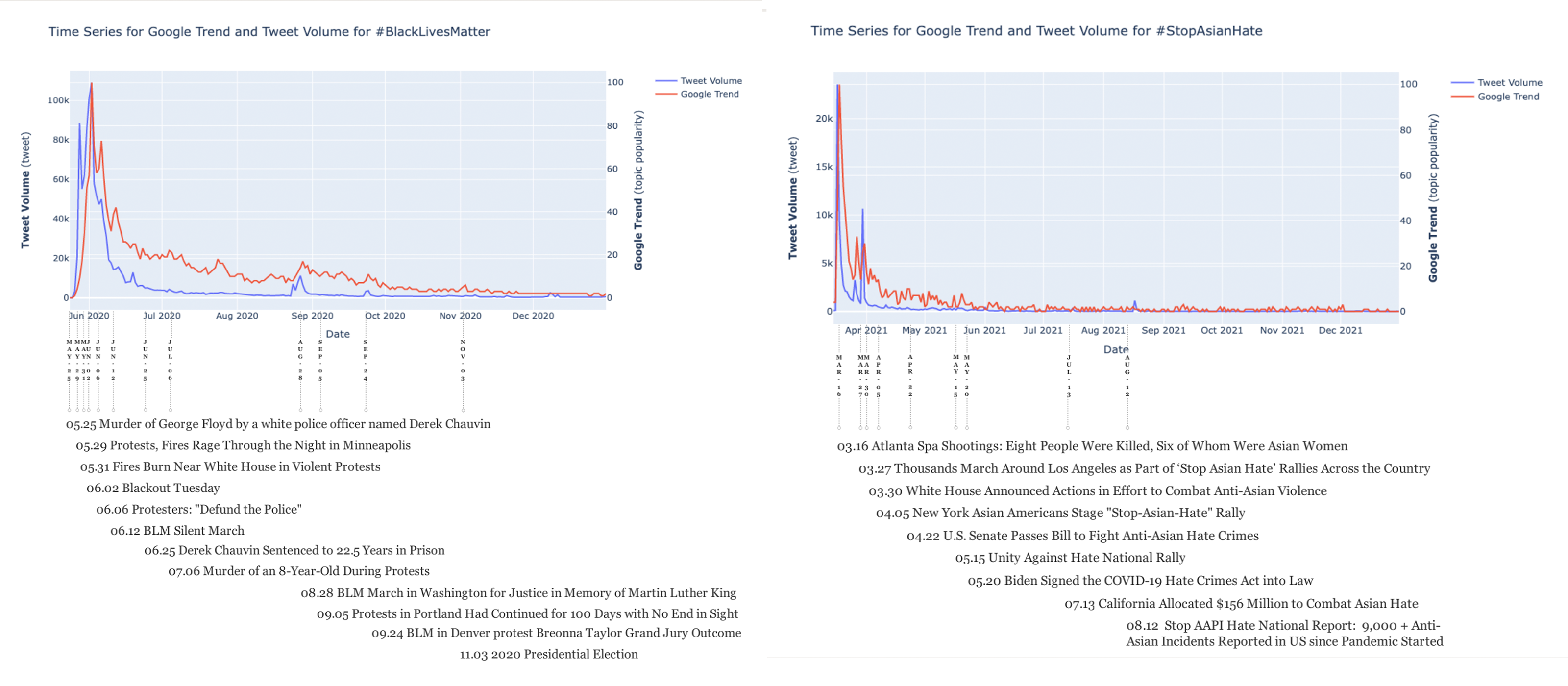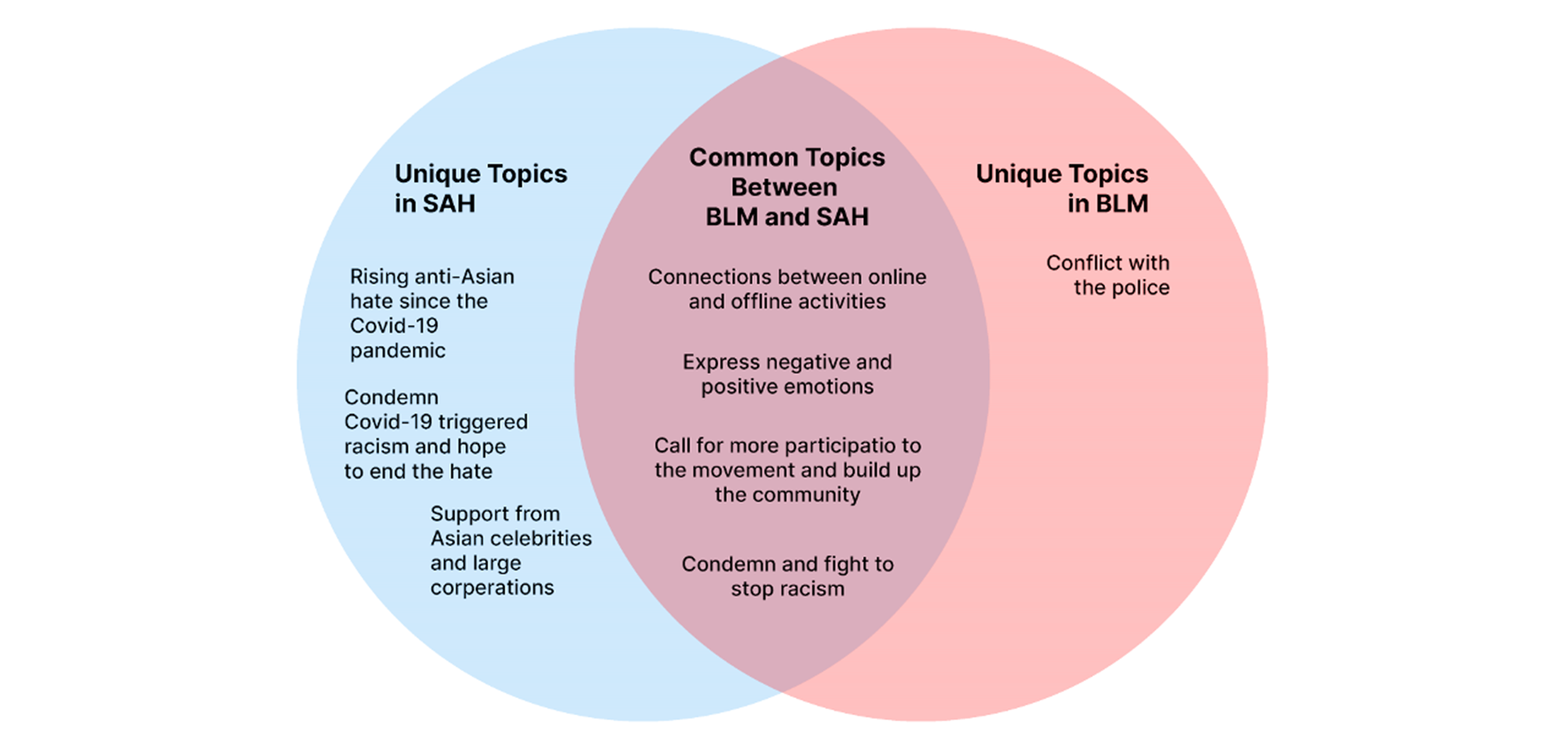What are People Talking about in #BackLivesMatter and #StopAsianHate? Exploring and Categorizing Twitter Topics Emerged in Online Social Movements through the Latent Dirichlet Allocation Model
Xin Tong, Yixuan Li, Jiayi Li, Rongqi Bei, and Luyao Zhang
Abstract
Minority groups have been using social media to organize social movements that create profound social impacts. Black Lives Matter (BLM) and Stop Asian Hate (SAH) are two successful social movements that have spread on Twitter that promote protests and activities against racism and increase the public's awareness of other social challenges that minority groups face. However, previous studies have mostly conducted qualitative analyses of tweets or interviews with users, which may not comprehensively and validly represent all tweets. Very few studies have explored the Twitter topics within BLM and SAH dialogs in a rigorous, quantified and data-centered approach. Therefore, in this research, we adopted a mixed-methods approach to comprehensively analyze BLM and SAH Twitter topics. We implemented (1) the latent Dirichlet allocation model to understand the top high-level words and topics and (2) open-coding analysis to identify specific themes across the tweets. We collected more than one million tweets with the #blacklivesmatter and #stopasianhate hashtags and compared their topics. Our findings revealed that the tweets discussed a variety of influential topics in depth, and social justice, social movements, and emotional sentiments were common topics in both movements, though with unique subtopics for each movement. Our study contributes to the topic analysis of social movements on social media platforms in particular and the literature on the interplay of AI, ethics, and society in general.



